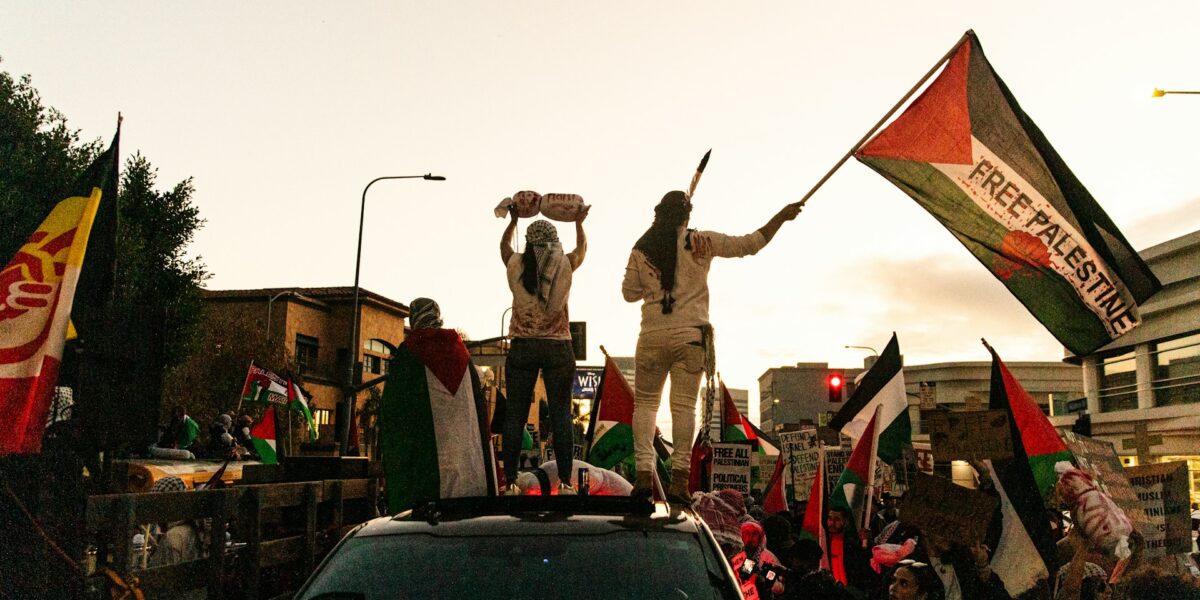The levels of protest over Gaza seem not to be subsiding and perhaps expanding, especially on campuses. The University of Michigan’s president just announced a “disruptive activity policy” with expulsion or firing for those who interrupt activities like class, field trips or graduation, with their protests.
Sigh. It makes me nostalgic. My first engagement with politics came at Columbia University, in New York, in 1965. I was 23 and had few or no political concerns. I was moodily crossing the campus in the rain and saw a hubbub between cops and antiwar students protesting a grad ceremony for students in the reserves.
I wandered over; the police violence mesmerized me. Then Columbia’s prez, a former IBM CEO, came out to say, “You people are interrupting a university exercise.” I heard my voice say, “You should see the exercise we’re getting out here,” and got pushed to the front where I had an impromptu dialogue with him. He got tired of it, went back in, and the melee continued. I was tossed down the steps.
And that’s been part of my life ever since: politics, disruption. I notice Columbia is still in the forefront of suppressing protest. In Toronto lately, cops have begun protesting the protests, though that’s not really their job. There’s a lot of talk about “crossing” the “fine line” between “lawful protest” and whatever.
These are issues hard to avoid and I don’t think they should be avoided. How much disruption to things like traffic or other people’s equanimity is justified, if at all, in the case of Gaza? Quite a bit, I think you could argue. It is not just another crisis.
Let me cite some examples. I’ll try to confine myself to quantifiable instances laid out by “objective” observers rather than dubious “anecdotal” cases like the unbearable videos of small, orphaned children — of whom UNICEF estimates there are now 19,000 there — sobbing and shaking.
A U.K. prof of epidemiology who’s studied these crises for 20 years says he’s “never seen such rates of starvation. The daily caloric intake per person in Gaza is currently below the minimum during the worst days of the Somali famine.”
A U of Chicago military historian says Gaza is “one of the most intense civilian punishment campaigns in history” that “sits comfortably in the top quartile of the most devastating bombing campaigns ever.”
Oxfam estimates the “number of average deaths per day is significantly higher than any recent major armed conflict,” including Syria, Ukraine, Afghanistan and Yemen. A report by the World Bank, EU and UN says, “Palestinians in Gaza now make up 80 per cent of all people facing famine or severe hunger worldwide.”
I have no interest in diminishing the atrocities committed under Hamas’s auspices on October 7. But Israel’s response may be in a different category. It undermines claims that Israel is subjected to a double standard, at least here.
So the question is, where do you draw the line of disruption, or erase it? U.K. leader Rishi Sunak, whose home protesters picketed last year, said, “I don’t care what your politics are, no MP should be harassed at their own home.” But a recent Gaza protester at Labour leader Keir Starmer’s home said, “In normal circumstances it would be seen as crossing a line … but these are not normal circumstances.”
I’d add that people draw lines differently and if you choose to cross one, you should be ready to pay the price. That’s why, in the nonviolent tradition, people trained for how to be arrested, not how to escape from arrest.
This also verges on recent concerns with feeling uncomfortable or unsafe. I’ve no doubt some Jews who’ve joined the Gaza protests have felt concern over how they’d be received. But every conflict over change involves living with discomfort.
Discomfort and disruption are probably part of any issue worth addressing and resolving. You have to be willing to tolerate some of that to at least attempt to improve intolerable situations. No discomfort, no progress.
This column originally appeared in the Toronto Star.



